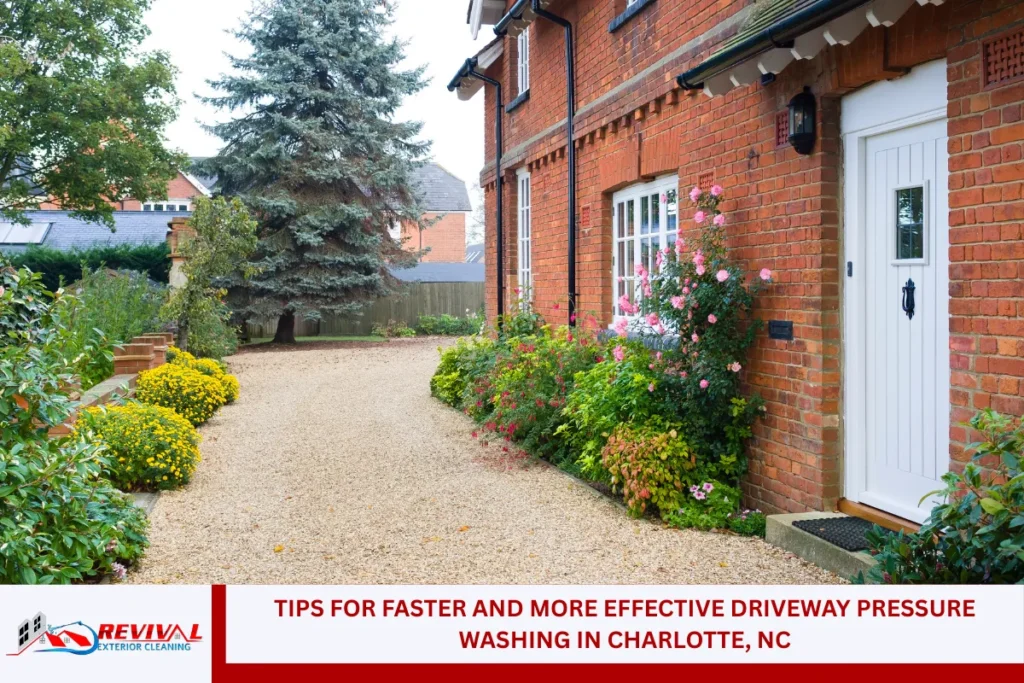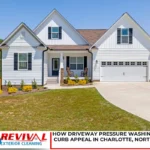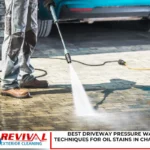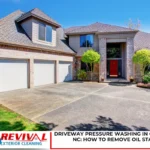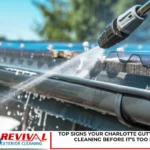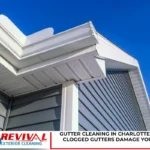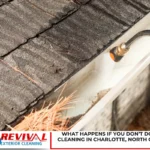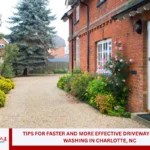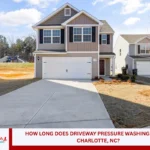Driveway pressure washing is a crucial aspect of maintaining the cleanliness and aesthetic appeal of your property. Over time, driveways accumulate dirt, grime, stains, and other debris that can negatively affect the appearance of your home. In Charlotte, NC, the combination of humid weather and seasonal rains makes pressure washing a necessity to keep driveways looking their best. This article will guide you through the best practices for driveway pressure washing, providing detailed information on how to effectively clean and maintain your driveway in the long term.
What is Driveway Pressure Washing?
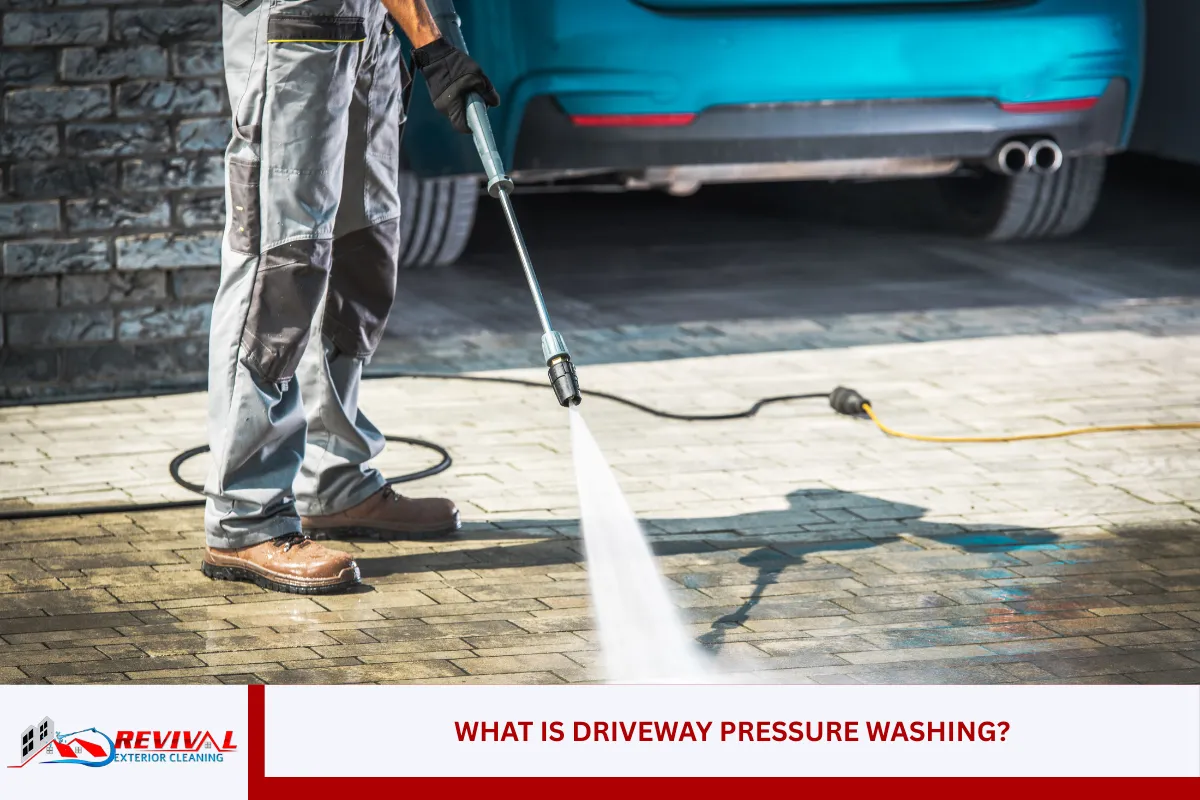
Driveway pressure washing refers to the use of high-pressure water to clean the surface of your driveway. A pressure washer uses water at a very high speed, often with detergent or other cleaning solutions, to remove dirt, grime, mold, mildew, and stains. The powerful water stream is effective in breaking down tough substances that are often difficult to clean with regular cleaning methods.
Pressure washing is ideal for hard surfaces such as concrete, brick, or asphalt, making it a popular choice for driveways. It removes more than just dirt and dust — it also cleans oil stains, algae, and moss that can grow in humid conditions. This method is far superior to using a broom or garden hose, as the high-pressure water stream reaches deep into the surface, lifting and loosening contaminants.
The Benefits of Pressure Washing Your Driveway
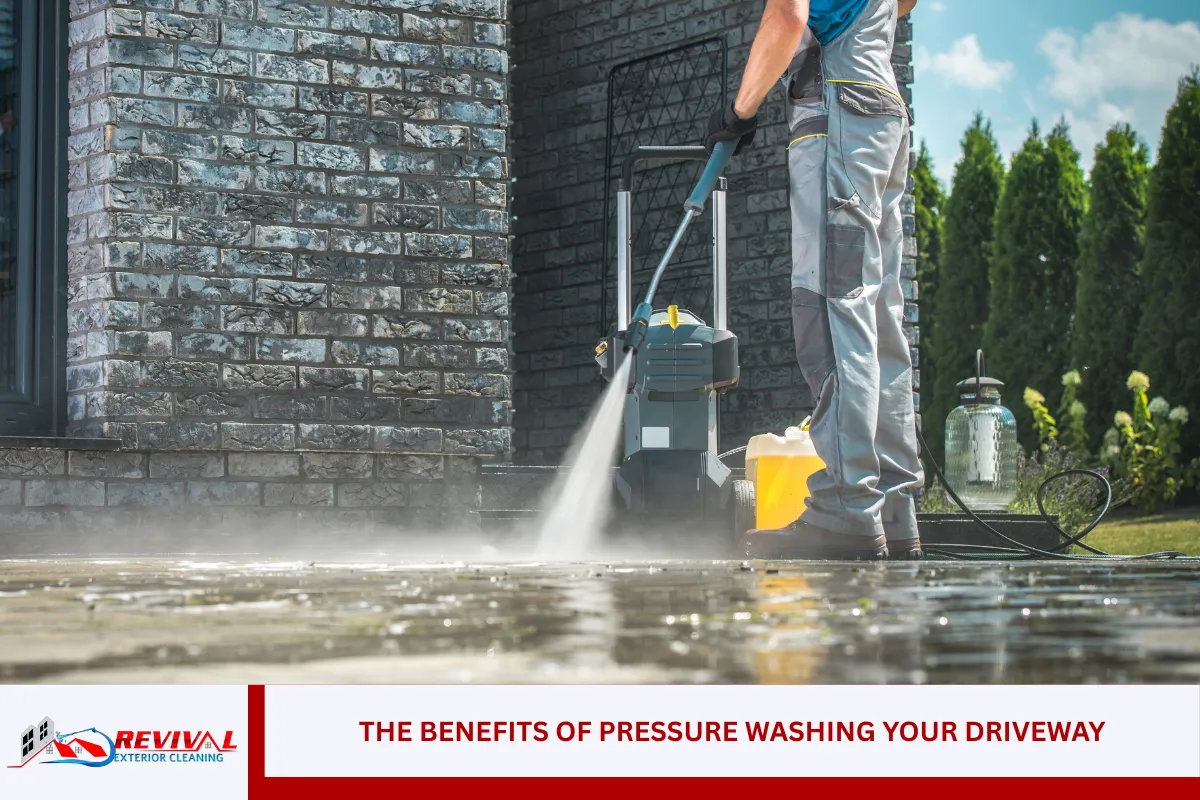
Improved Aesthetic Appeal
A clean driveway instantly enhances the overall appearance of your property. Stains from oil spills, tire marks, and dirt can make your driveway look aged and neglected. Pressure washing can restore your driveway to its original state, making it look brand new and well-maintained. This improved curb appeal is often the first thing people notice when visiting your home, creating a positive impression.
Increased Property Value
A driveway that is regularly cleaned and maintained will contribute to the overall value of your home. Buyers are more likely to be attracted to a property with well-maintained exterior areas, including the driveway. A clean driveway gives the impression of a well-maintained home and can increase the perceived value of your property.
Prevention of Structural Damage
Stubborn stains, mold, and algae can slowly degrade the surface of your driveway if left untreated. Pressure washing helps prevent these elements from causing long-term damage by removing them before they can weaken the material. Regular pressure washing helps to keep your driveway strong, stable, and intact for years to come.
Enhanced Safety
A dirty driveway can become slippery, especially when algae and moss begin to grow on it. This can create a safety hazard for anyone walking or driving on the surface. Pressure washing removes these slippery substances, creating a safer surface for both pedestrians and vehicles.
Common Driveway Issues in Charlotte, NC
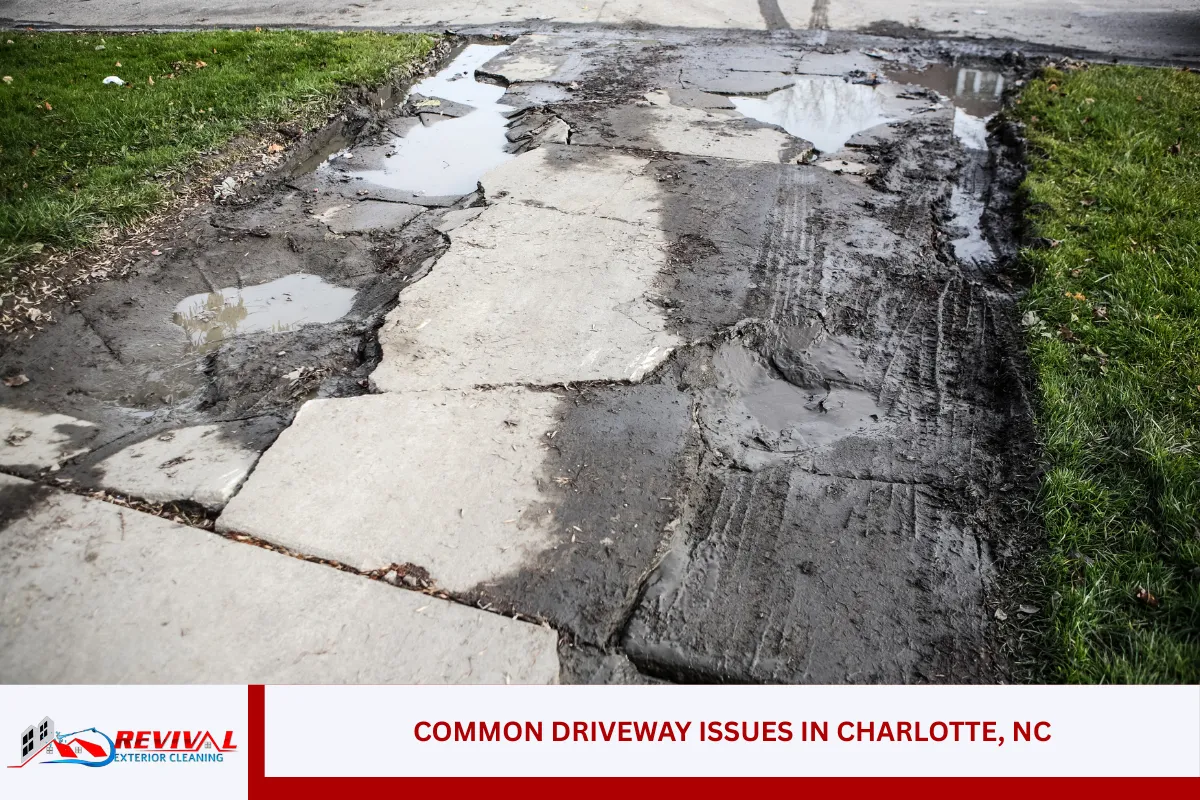
Humidity and Mold Growth
Charlotte, NC, experiences a humid subtropical climate, which can create ideal conditions for mold, mildew, and algae growth. These organisms thrive in moisture-rich environments and can quickly spread across concrete or asphalt surfaces, leaving unsightly dark patches. Without regular cleaning, these growths can stain and deteriorate the surface of your driveway.
Traffic and Dirt Build-Up
With the bustling city life in Charlotte, driveways often experience heavy traffic. Whether it’s vehicles passing by, children playing, or pets running around, dirt and grime accumulate quickly on the surface. Over time, this dirt can create stubborn stains that are difficult to remove without the right cleaning technique.
Organic Matter and Tree Sap
Many properties in Charlotte have lush, green landscapes that can shed organic debris such as leaves, twigs, and flowers onto driveways. Additionally, trees surrounding the property may release sap, which can stick to the surface and attract dirt. These organic substances can stain the driveway, making pressure washing the most effective solution for removing them.
Choosing the Right Equipment for Pressure Washing
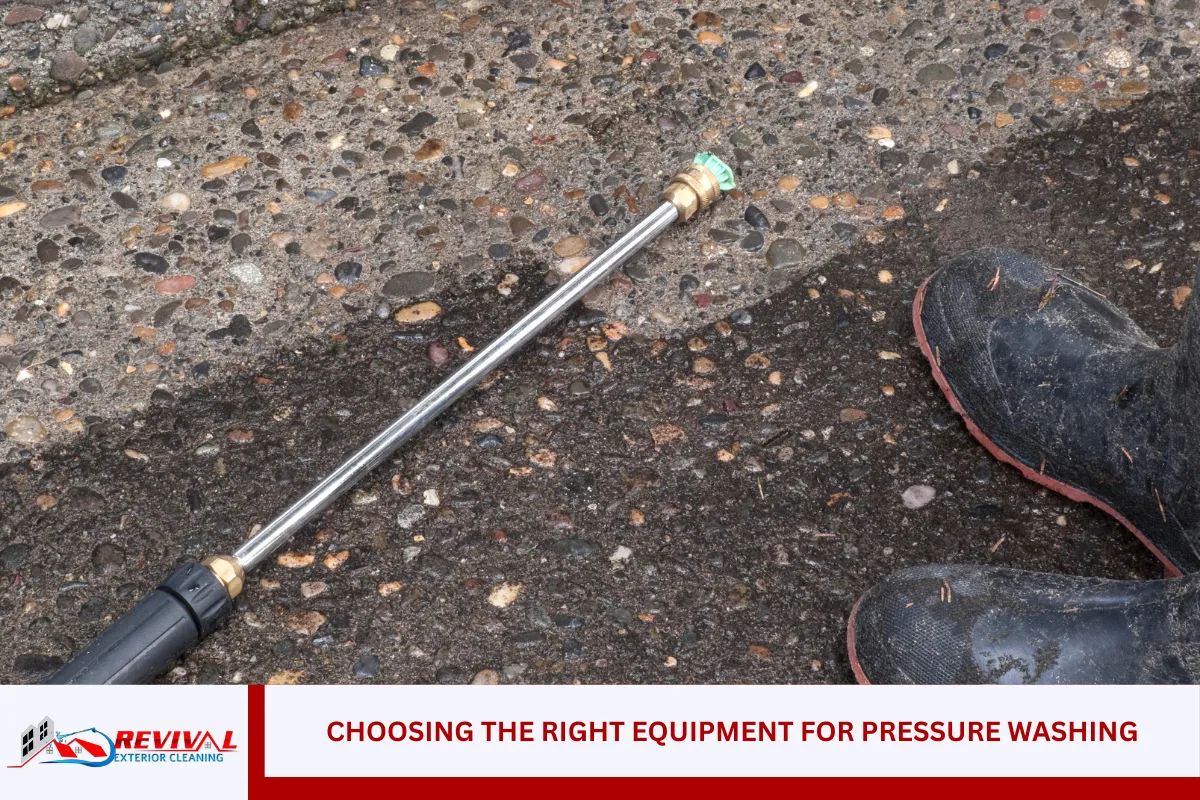
High-Pressure Water Systems
To achieve optimal results when pressure washing your driveway, you need the right equipment. High-pressure water systems provide the necessary PSI (pounds per square inch) to clean tough stains. PSI ratings vary depending on the machine’s capacity, with higher PSI machines providing more power for tougher jobs. However, it’s essential to select the right PSI for your specific driveway material to avoid damage.
Pressure washers come in various types, including electric and gas-powered models. Gas-powered machines are often more powerful and better suited for heavy-duty cleaning. However, electric models are quieter, more lightweight, and sufficient for lighter tasks.
Cleaning Solutions and Detergents
In many cases, using a pressure washer alone may not be enough to eliminate stubborn stains, particularly those caused by oil or organic growth. Professional-grade detergents and cleaning solutions are often necessary to break down these substances effectively. Depending on the type of stains, you can choose degreasers for oil spots or anti-mold solutions for organic growth. These solutions help to loosen stains, making it easier for the high-pressure water to lift them from the surface.
Steps to Effectively Pressure Wash Your Driveway
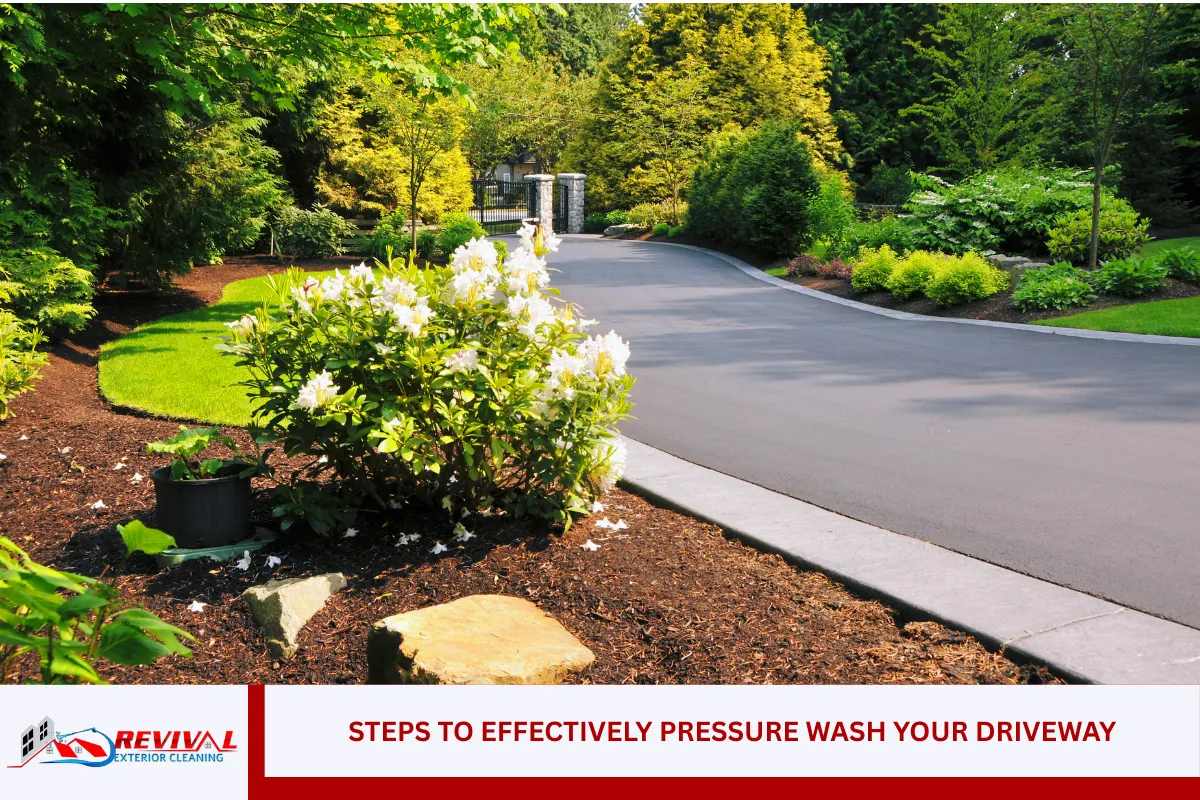
1. Preparation
Before you start, ensure your driveway is clear of obstacles such as vehicles, furniture, and debris. This will provide you with ample space to work and minimize the risk of accidents. You should also cover plants and vegetation near the driveway to protect them from the high-pressure water and cleaning chemicals.
2. Apply the Right Cleaning Solution
Depending on the type of stain, select a cleaning solution that suits your specific needs. If you’re dealing with oil stains, use a degreaser. For mold or mildew, use a fungicide or mold cleaner. Apply the solution directly to the stains, allowing it to sit for a few minutes to break down the contaminants.
3. Pressure Wash the Driveway
Using the pressure washer, start from one corner of your driveway and work your way across in a systematic fashion. Hold the nozzle at a safe distance from the surface (typically about 12 inches) and spray in long, sweeping motions. Be careful not to concentrate the spray on one spot for too long to avoid damaging the surface. Adjust the nozzle as needed to provide the optimal pressure for different types of stains.
4. Rinse and Inspect
Once you’ve gone over the entire driveway, rinse the surface thoroughly with clean water. Take a step back and inspect the driveway to ensure all stains have been removed. If necessary, repeat the process on any stubborn spots.
5. Seal the Driveway (Optional)
After the driveway has dried, you can apply a sealant to protect it from future staining and weather damage. This step is optional, but it can help extend the life of your driveway and keep it looking clean for a longer period.
Why You Should Hire a Professional for Driveway Pressure Washing
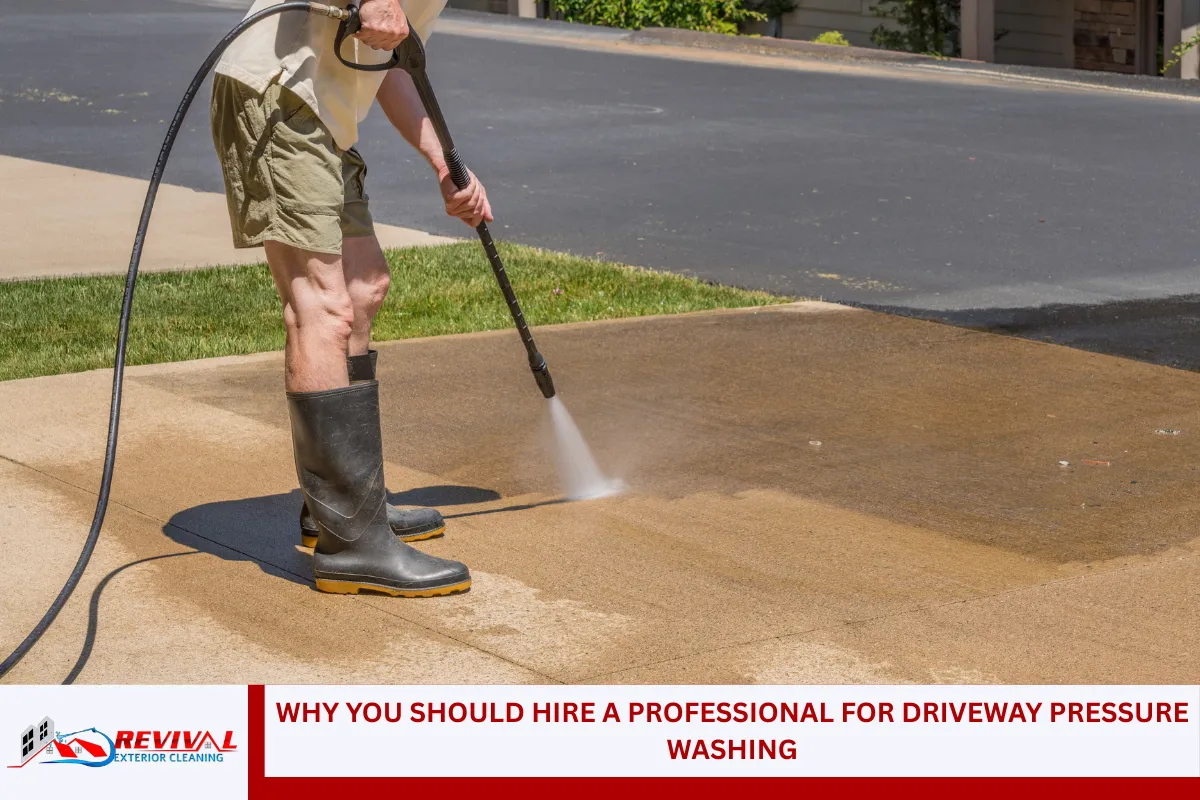
While DIY pressure washing is possible, it often takes more time and effort than hiring a professional service. Professionals come equipped with the right tools, expertise, and cleaning solutions to complete the job quickly and efficiently. Additionally, they are skilled in handling various materials and adjusting pressure to prevent damage.
Hiring a professional ensures that your driveway is cleaned thoroughly and safely, giving you peace of mind that the job will be done right the first time.
How Often Should You Pressure Wash Your Driveway in Charlotte?
In Charlotte, the humid climate can cause mold and algae to grow quickly, making it important to pressure wash your driveway at least once or twice a year. However, if your driveway is frequently exposed to oil spills or organic debris, you should increase the frequency of cleaning. Scheduling a pressure washing session before the rainy season can help remove excess dirt and prevent stains from setting in.
Cost Considerations for Driveway Pressure Washing in Charlotte, NC
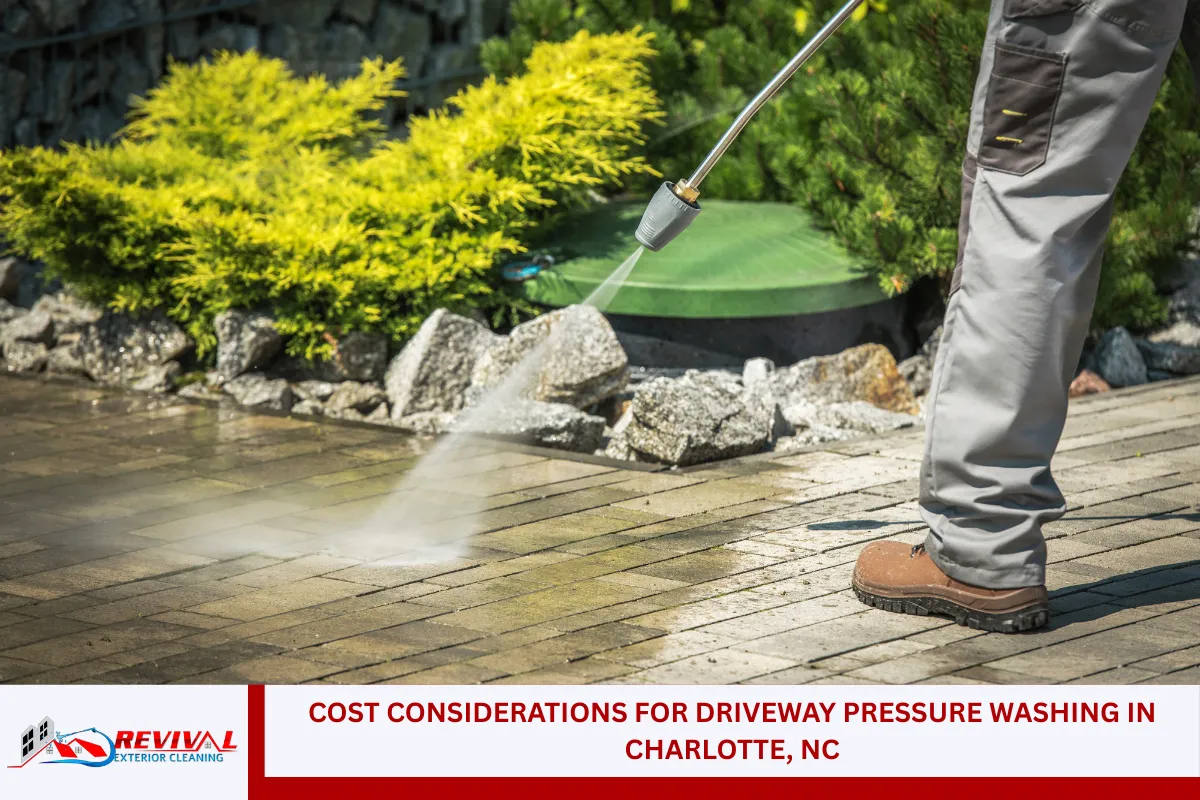
The cost of pressure washing services in Charlotte varies depending on the size of your driveway, the type of cleaning required, and the professional company you choose. On average, homeowners can expect to pay between $150 and $400 for driveway cleaning services. Larger driveways or those with heavy staining may incur higher costs, but this service is a worthwhile investment in maintaining your property’s appearance and value.
Safety Considerations When Pressure Washing Your Driveway
While pressure washing is an effective way to clean your driveway, it’s important to take the necessary safety precautions. Always wear protective gear such as goggles, gloves, and closed-toe shoes to shield yourself from flying debris and chemical exposure. Additionally, avoid spraying water near electrical outlets or power lines, as water and electricity can be a dangerous combination.
Charlotte Driveway Pressure Washing – Revival Exterior Cleaning
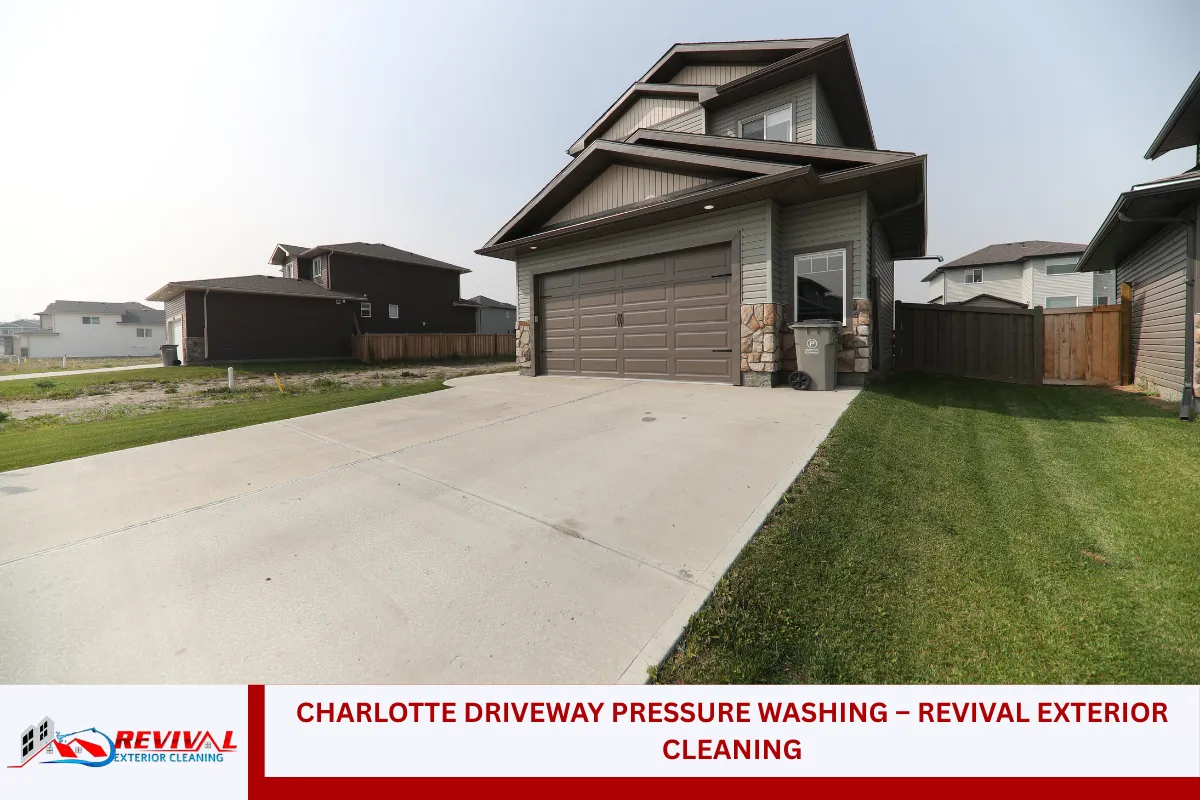
Looking for a trusted team to handle your driveway pressure washing in Charlotte? Revival Exterior Cleaning is a family-owned business committed to delivering exceptional pressure washing services. We specialize in not only driveway pressure washing but also gutter cleaning, window cleaning, and commercial cleaning. Whether it’s your home or business, we take pride in our attention to detail and commitment to transforming your property.
If you’re ready to restore your driveway to its original condition, contact us today at (980) 264-2359 to book an appointment.
FAQ – Driveway Pressure Washing in Charlotte, NC
1. What is the difference between an electric and a gas pressure washer for driveway cleaning?
The primary difference between an electric pressure washer and a gas pressure washer lies in power and performance. Gas pressure washers offer greater pressure (measured in gallons per minute and PSI), making them ideal for cleaning larger driveways or removing tough stains such as rust stains and oil. They are better suited for heavy-duty tasks, such as power washing concrete surfaces. On the other hand, electric pressure washers are quieter, lighter, and perfect for smaller jobs, such as routine driveway pressure washing. They also consume less water and are typically easier to store. Both options can be fitted with a pressure nozzle or surface cleaner attachment to increase efficiency.
2. How do I choose the right surface cleaner for my driveway?
Choosing the right surface cleaner is essential for efficient power washing. Consider the following:
- Size: Larger surface cleaners are suitable for bigger concrete driveways and will speed up the job.
- Pressure and flow rate: Ensure the cleaner is compatible with your pressure washer’s PSI and gallons per minute. Too much pressure may damage the concrete surfaces, while too little might not clean effectively.
- Cleaning agent compatibility: Some concrete cleaners require specific pressure wash soap or concrete detergent to clean stubborn stains effectively. You can also use eco-friendly cleaning solutions for a safe and non-toxic clean.
- Nozzle tips: Ensure the nozzle tips are suitable for the surface. A low-pressure tip is suitable for cleaning delicate surfaces, such as brick pavers, while a higher-pressure tip may be necessary for removing stubborn dirt and debris.
3. Is it safe to pressure wash a concrete driveway?
Yes, pressure washing is a safe and effective way to clean your concrete driveway, provided you use the correct technique. Safety equipment, such as safety glasses and sturdy gloves, should be worn to protect against debris and high-pressure water. Always start with a lower pressure setting, especially if you’re using a gas-powered pressure washer, and gradually increase it as needed. To prevent damage, avoid using a pressure setting that is too high and keep the pressure hose at a safe distance from the concrete surface. For best results, use a surface cleaner attachment to ensure uniform cleaning, and apply a concrete cleaner to remove stains. Afterward, consider applying a concrete sealer to protect the surface from future stains.
4. What types of cleaning agents can I use for concrete driveway pressure washing?
The choice of cleaning agent depends on the type of stain and the material of your driveway. Common agents include:
- Concrete detergent: Specially formulated for concrete surfaces, it helps break down dirt and grease.
- Baking soda: An eco-friendly cleaning solution for lighter stains and odors.
- Rust removers: When treating rust stains, use a rust-specific cleaner that is compatible with the pressure washer’s nozzle.
- Concrete cleaner: A powerful solution designed to tackle tough stains like oil or grime. Some pressure washers come with a built-in soap tank, allowing you to mix detergents directly into the cleaning process. When applying, always read labels for proper usage.
5. Can a pressure washer extension hose be used for larger driveways?
Yes, a pressure washer extension hose can be extremely helpful when cleaning large areas, such as a lengthy concrete driveway. It allows you to extend the reach of the pressure hose, reducing the need to move the pressure washer itself constantly. This is particularly useful if you have a water supply issue or need to work around vehicles and obstacles. Ensure the extension hose is rated for the PSI of your pressure washer and matches the specifications of your existing pressure nozzle to prevent a drop in water pressure during use.
Read more: Common Mistakes That Add Time to Driveway Pressure Washing in Charlotte, North Carolina


